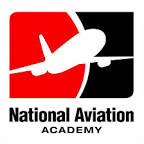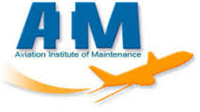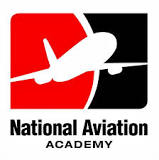What do they do?
Inspect aircraft, maintenance procedures, air navigational aids, air traffic controls, and communications equipment to ensure conformance with Federal safety regulations.
Also known as:
Aircraft Inspector, Aircraft Maintenance Inspector, Aircraft Quality Control Inspector (Aircraft QC Inspector), Airworthiness Inspector, Airworthiness Safety Inspector, Aviation Safety Inspector (ASI), Avionics Safety Inspector, Inspector, Manufacturing Aviation Safety Inspector (Manufacturing ASI), Quality Control Inspector (QC Inspector), Quality Inspector, RTS Inspector (Return to Service Inspector), Technical Inspector
-
0%
Change
Ranks #53 in job growth rate50Job Openings
Ranks #17 in net job growth
Looking for colleges that offer a specific major? Use the College Match Tool to find your best-matched schools and discover your estimated Net Price!
- Some college, no degree (33%)
- High school diploma equivalent (27%)
- Bachelor's degree (16%)
- Associate's degree (15%)
- Less than high school diploma (5%)
- Master's degree (3%)
- Doctorate or Professional Degree (1%)
Most Popular Majors that prepare Aviation Inspectors
-
#1
-
Degrees Granted
39
-
Female Students
3
-
Male Students
36
-
Median Starting Salary
$56,989
-
-
#2
-
Degrees Granted
12
-
Female Students
0
-
Male Students
12
-
Median Starting Salary
$57,600
-
-
#3
-
Degrees Granted
5
-
Female Students
2
-
Male Students
3
-
Median Starting Salary
$41,340
-
-
#4
-
Degrees Granted
3
-
Female Students
0
-
Male Students
3
-
Median Starting Salary
$56,989
-
-
#5
-
Degrees Granted
1
-
Female Students
0
-
Male Students
1
-
Median Starting Salary
$45,600
-
People in this career often have these skills:
- Critical Thinking - Using logic and reasoning to identify the strengths and weaknesses of alternative solutions, conclusions, or approaches to problems.
- Reading Comprehension - Understanding written sentences and paragraphs in work-related documents.
- Active Listening - Giving full attention to what other people are saying, taking time to understand the points being made, asking questions as appropriate, and not interrupting at inappropriate times.
- Speaking - Talking to others to convey information effectively.
- Operations Monitoring - Watching gauges, dials, or other indicators to make sure a machine is working properly.
- Quality Control Analysis - Conducting tests and inspections of products, services, or processes to evaluate quality or performance.
- Writing - Communicating effectively in writing as appropriate for the needs of the audience.
- Monitoring - Monitoring/Assessing performance of yourself, other individuals, or organizations to make improvements or take corrective action.
- Complex Problem Solving - Identifying complex problems and reviewing related information to develop and evaluate options and implement solutions.
People in this career often know a lot about:
- English Language - Knowledge of the structure and content of the English language including the meaning and spelling of words, rules of composition, and grammar.
- Mechanical - Knowledge of machines and tools, including their designs, uses, repair, and maintenance.
- Public Safety and Security - Knowledge of relevant equipment, policies, procedures, and strategies to promote effective local, state, or national security operations for the protection of people, data, property, and institutions.
- Customer and Personal Service - Knowledge of principles and processes for providing customer and personal services. This includes customer needs assessment, meeting quality standards for services, and evaluation of customer satisfaction.
- Transportation - Knowledge of principles and methods for moving people or goods by air, rail, sea, or road, including the relative costs and benefits.
- Education and Training - Knowledge of principles and methods for curriculum and training design, teaching and instruction for individuals and groups, and the measurement of training effects.
- Production and Processing - Knowledge of raw materials, production processes, quality control, costs, and other techniques for maximizing the effective manufacture and distribution of goods.
- Engineering and Technology - Knowledge of the practical application of engineering science and technology. This includes applying principles, techniques, procedures, and equipment to the design and production of various goods and services.
- Mathematics - Knowledge of arithmetic, algebra, geometry, calculus, statistics, and their applications.
- Administration and Management - Knowledge of business and management principles involved in strategic planning, resource allocation, human resources modeling, leadership technique, production methods, and coordination of people and resources.
- Law and Government - Knowledge of laws, legal codes, court procedures, precedents, government regulations, executive orders, agency rules, and the democratic political process.
- Computers and Electronics - Knowledge of circuit boards, processors, chips, electronic equipment, and computer hardware and software, including applications and programming.
- Design - Knowledge of design techniques, tools, and principles involved in production of precision technical plans, blueprints, drawings, and models.
- Physics - Knowledge and prediction of physical principles, laws, their interrelationships, and applications to understanding fluid, material, and atmospheric dynamics, and mechanical, electrical, atomic and sub-atomic structures and processes.
- Administrative - Knowledge of administrative and office procedures and systems such as word processing, managing files and records, stenography and transcription, designing forms, and workplace terminology.
People in this career often have talent in:
- Problem Sensitivity - The ability to tell when something is wrong or is likely to go wrong. It does not involve solving the problem, only recognizing that there is a problem.
- Inductive Reasoning - The ability to combine pieces of information to form general rules or conclusions (includes finding a relationship among seemingly unrelated events).
- Oral Comprehension - The ability to listen to and understand information and ideas presented through spoken words and sentences.
- Deductive Reasoning - The ability to apply general rules to specific problems to produce answers that make sense.
- Near Vision - The ability to see details at close range (within a few feet of the observer).
- Written Comprehension - The ability to read and understand information and ideas presented in writing.
- Oral Expression - The ability to communicate information and ideas in speaking so others will understand.
- Speech Clarity - The ability to speak clearly so others can understand you.
- Written Expression - The ability to communicate information and ideas in writing so others will understand.
- Information Ordering - The ability to arrange things or actions in a certain order or pattern according to a specific rule or set of rules (e.g., patterns of numbers, letters, words, pictures, mathematical operations).
- Speech Recognition - The ability to identify and understand the speech of another person.
- Perceptual Speed - The ability to quickly and accurately compare similarities and differences among sets of letters, numbers, objects, pictures, or patterns. The things to be compared may be presented at the same time or one after the other. This ability also includes comparing a presented object with a remembered object.
- Visualization - The ability to imagine how something will look after it is moved around or when its parts are moved or rearranged.
- Far Vision - The ability to see details at a distance.
People in this career often do these activities:
- Inspect aircraft or aircraft components.
- Investigate transportation incidents, violations, or complaints.
- Review documents or materials for compliance with policies or regulations.
- Issue certificates or licenses.
- Schedule operational activities.
- Coordinate flight control or management activities.
- Record service or repair activities.
- Recommend changes or corrective procedures.
- Monitor equipment gauges or displays to ensure proper operation.
- Pilot aircraft.
- Evaluate performance of applicants, trainees, or employees.
- Test performance of aircraft equipment.
This page includes data from:

 Occupation statistics: USDOL U.S. Bureau of Labor Statistics Occupational Employment Statistics
Occupation statistics: USDOL U.S. Bureau of Labor Statistics Occupational Employment Statistics











